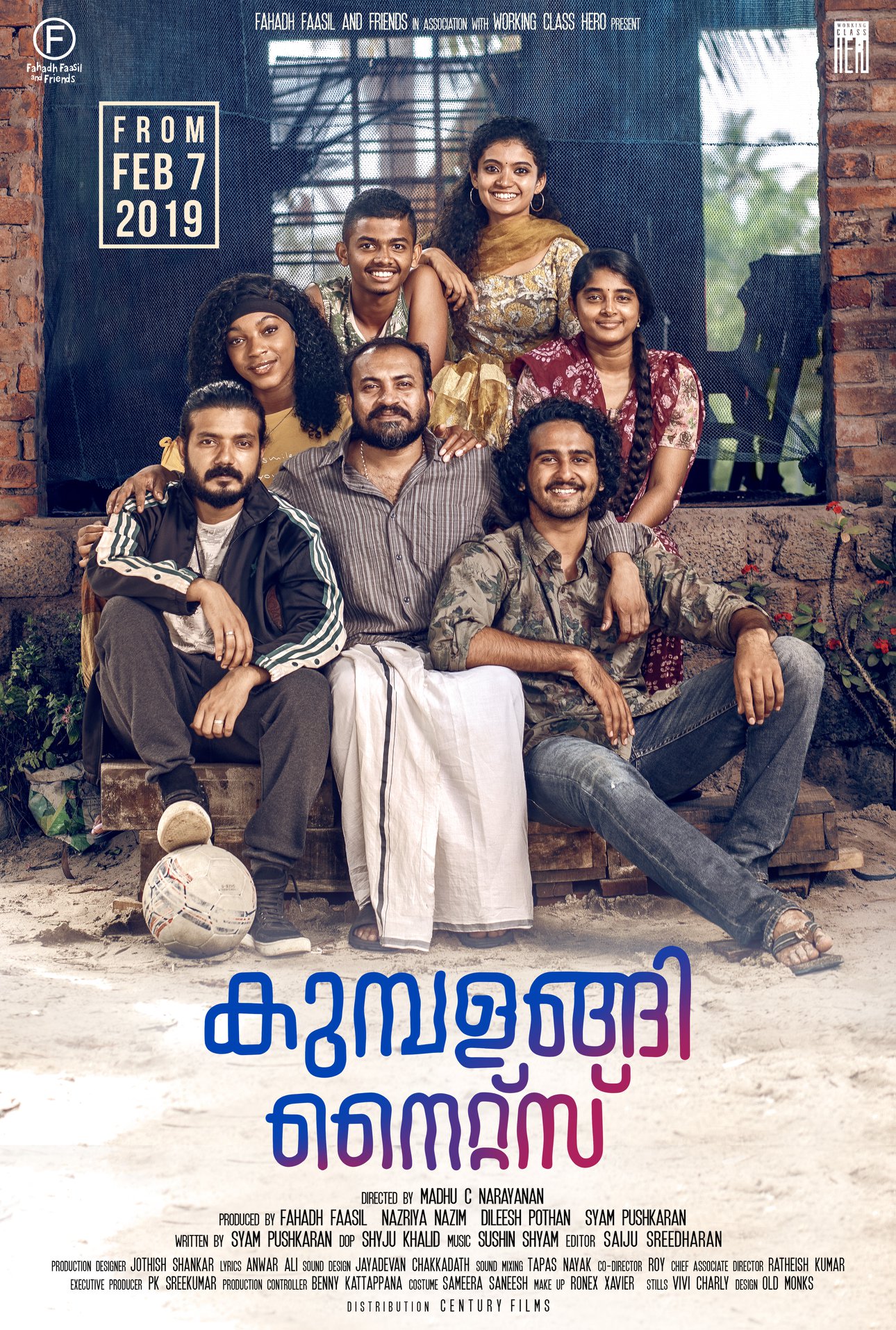One of the best ways to watch a
movie is to watch it without knowing what to expect. And that is precisely what
I did last weekend with debutante director’s Malayalam hit, ‘Kumbalangi
Nights’.

Unaware of what ‘Kumbalangi’
means or the plot of the movie, I let the movie unfold before me. Set in a
quaint little town of Kumbalangi, we are introduced to four brothers living in
a half-constructed building. The eldest, Saji (Soubin Shahir) runs a small
laundry with his friend, Vijay, and leads a life unconnected with his brothers.
Bonny (Sreenath Bhasi), the second amongst the four, is mute and prefers to
spend his time away from his dysfunctional home, reserving his love and
adulation only for the youngest among the four, Franky (Mathew Thomas). Franky
studies on a scholarship in a boarding school and returns reluctantly to their
nomadic household during his vacations. The third sibling, Bobby (Shane Nigam),
is a jobless youth who falls for a tourist guide, Baby (Anna Ben). Baby lives
in a household run by women, until her sister marries Shammi (Fahadh Faasil)
who moves in with them as the society deems everyone needs a ‘man of the
house’. While the brothers lead a nomadic existence, evident from their unkempt
appearance and shabby house, Bobby’s love story brings them closer. This is
where Kumbalangi Nights blooms and gives us a subtle peek into various social
issues.

The biggest strength of the movie
is how it underplays serious issues, without overemphasizing or making a big deal
out of them. Be it the difference in class between Bobby and Baby or the gaze
of contempt that the society casts over a platonic relationship between Saji
and Vijay’s wife, the writer Syam Pushkaran deals them with utmost delicacy.
The transition of the four brothers from a ‘Satte
Pe Satta’ style dysfunctional family to a loving brotherhood happens
organically and does not seem forced. For instance, the movie begins with a
reluctant Franky shown to be unexcited about returning home for the vacations.
His lack of excitement is explained in the way he is welcomed – there are no
warm hugs or his brothers waiting for his arrival. He barely smiles or shows
his warmth to his emotionally estranged brothers. This behaviour changes when a
foreigner, Nylah, moves into their home, as he misses having a female companion
at home. His yearning for his mother’s love is satiated when Vijay’s wife moves
in with her baby. See his child-like innocence on hearing her sing lullabies.
The writing and direction also
deserve an applause for the subtly driving home the point of consent in a
relationship. When Baby declines Bobby’s lustful advances during a movie, an
angry Bobby walks out while the confident Baby stands her ground. As he walks
off, we are shown on the screen – Arjun Reddy! A brilliant way of showing the
contrast between an unconsented kiss on-screen and an off-screen couple
defining what consent means. It is such subtleties that help this simple story
make an effective ground for various social issues.
Among the performances, the one
that stands out is the one I least talked about till now. Fahadh Faasil is
spectacular as the slightly eccentric and immensely puzzling, Shammi. Even with
a wide smile on his face, he creates an environment of tension and impending
doom. The viewer anticipates something wrong to happen the moment he is on
screen, but he keeps his eccentric ways in check, till it breaks loose in the
end. Apart from producing the film, it is commendable that he took up such a
complicated and unlikeable character. The rest of the cast is very good,
especially Anna Ben as the spirited and independent, Baby. A special mention of
the stunning camerawork by Shyju Khalid, for capturing Kerala in all its glory.
With a crisp run-time of 2 hours,
Kumbalangi Nights is a delightful watch and definitely recommended for a light,
yet riveting watch.
My Review – 3.5/5
No comments:
Post a Comment
Note: Only a member of this blog may post a comment.